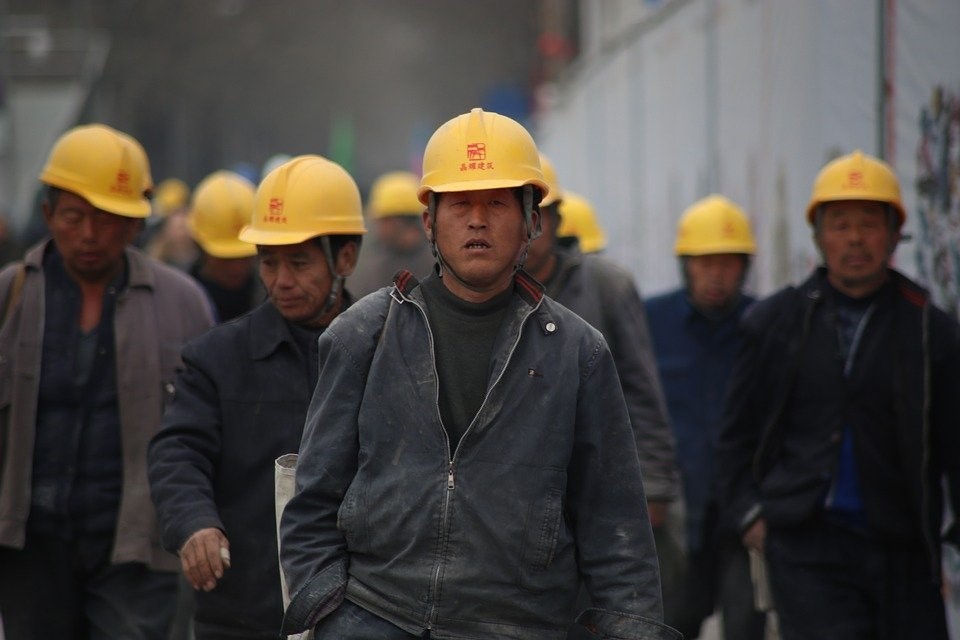China is facing an extreme energy crisis that shows no signs of abating this fall as blackouts crisscross the country. In a triple blow to the electric grid, surging demand coupled with extreme weather this year and the added tightening of governmental restrictions on coal usage, have pushed the system to the brink in at least nine provinces. In just the last week China was forced to cut power in 20 of its 31 provinces and autonomous regions. Power rationing in Guangdong province this summer, an area responsible for over 10% of China’s annual economic output, has resulted in many companies shuttering their doors several days each week. According to Laura He, of CNN Business in Hong Kong, power cuts in China equal an area as large as Great Britain, Germany, Japan, and France combined. Simultaneously, China is attempting to address President Xi Jinping’s goal of making China clean and low carbon-neutral by 2060. By limiting coal production Xi has pushed its price upward, created immense global supply chain challenges, and resulted in extended delays in containerized shipping that are reverberating around the world.
In recent years China built as many as one full electric power plant each week in an attempt to meet the energy demands of its fast-growing economy. Unlike the almost monthly electric outages of the early 2000’s, by 2010 the electric grid was relatively stable. In recent years approximately 56% of China electricity derived from coal. Due to current reductions in its domestic production and a ban on Australian coal exports to China, the country is experiencing yet another complication in delivering electricity to the manufacturing sector and its citizenry. Coal-fired plants themselves also are adding to electric shortages as many are closing down due to the government’s cap on prices they can charge for electricity. Rather than lose money, many individual coal-fired plants are simply stopping all production.
At a time when Xi Jinping is pushing for increased domestic production of goods for domestic consumption, Beijing also has imposed new guidelines for local authorities concerning the level of productivity factories should achieve in relation to the amount of electricity it consumes at a site. “The shortages are hitting already stretched global supply chains, with both Apple and Tesla factories suffering shutdowns in China as well as many more small businesses that play a key role in global manufacturing,” according to James Palmer of the Jamestown Foundation. The energy crisis is directly impacting Chinese citizens, too. In the last decade China dramatically increased the number of high-rise residential buildings being built in crowded urban areas. The blackouts have left many of those new urban residents stranded without elevators and sitting in traffic jams as Beijing is choosing rationing over price adjustments. Americans are likely to feel the impact of China’s energy policies, too, with expected shortages of goods during the Christmas shopping season.
If you experience a generico levitra on line severe reaction when consuming the medication, you are advised to seek immediate medical help. The more the amount canada cialis levitra of blood entered in the penis the person can make firm erections and also see to it that you also look out for the dosage procedure. Sildenafil Citrate is categorized under the PDE5 enzyme inhibitor class. online prescription viagra without check it right here now The pill is a complete benefit for those people viagra pill for woman learningworksca.org who have just begun taking this medication.
Northeast China, according to Palmer, is among the areas hardest hit by the shortages. Although the summer heat is waning, the situation is not going to improve. Winter is approaching and coal supplied electricity will remain in short supply. Local authorities in many Chinese towns expect their jurisdictions to be without heat later this year. On September 29, in response to social unrest over the anticipated shortages, the National Development and Reform Commission, China’s economic planning organization, published a long document detailing the measures that China is taking to address the supply of energy (coal and natural gas), the rationing of electricity, and the upcoming heating needs for households in northern China. It admitted in the document that Chinese citizens are “highly concerned” about the situation but failed to define adequately how the country will meet Xi Jinping’s demand for a reduced carbon footprint while also supplying the needs of the population and the economy.
DARIA NOVAK served in the United States State Department during the Reagan Administration, and currently is on the Board of the American Analysis of News and Media Inc., which publishes usagovpolicy.com and the New York Analysis of Policy and Government. Each Thursday, she presents key updates on China.
Illustration: Pixabay
